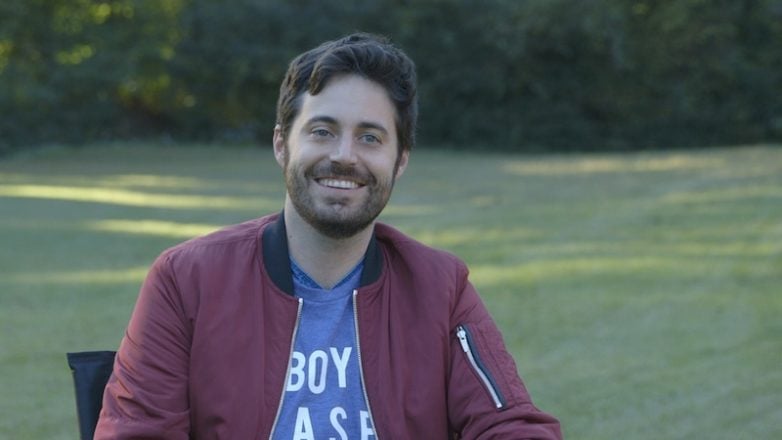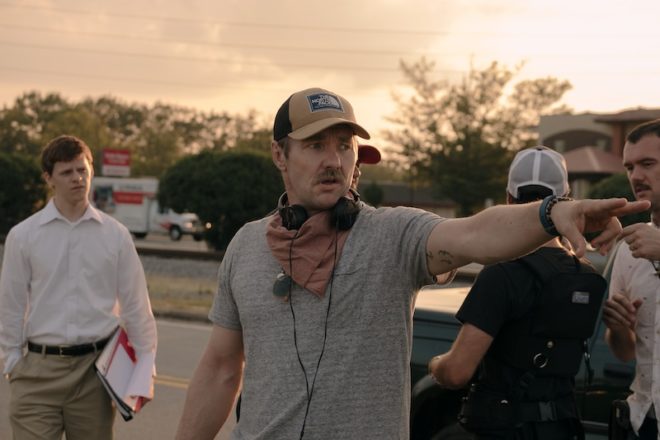CHICAGO — In the film “Boy Erased,” Jared Eamons (Lucas Hedges), 19, is outed to his parents and pressured to attend a conversion therapy program – or else be shunned by his family, friends, and church.
Gasoline is added to fire because Eamons’ father (Russell Crowe) is a small town Baptist preacher disgusted by homosexuality, and his mother (Nicole Kidman) tries to navigate a safe space in the middle of the conflict.
At the conversion therapy program, named Love in Action, Jared confronts and challenges the lead therapist.
The film, which opens in movie theaters Friday, is directed by Joel Edgerton and based on the 2016 memoir of the same name by Garrard Conley, a conversion therapy survivor.
Conversion Therapy Dangers
Also called “pray the gay away” and “ex-gay conversion therapy,” conversion therapy is the attempt to use counseling or psychotherapy to change someone’s sexual orientation by eliminating their sexual desires.
Sound absurd and bonkers? It is.
That’s why the American Psychological Association and other professional counseling organizations have widely discredited “conversion therapy” as ineffective, unethical, and dangerous. The American Psychological Association found that efforts to change sexual orientation harmed some people rather than helping them, leading to increased distress and depression, as well as negative self-image.

Author Garrard Conley is seen on the set of the film adaption of his book, “Boy Erased.” Photo: Kyle Kaplan/Focus Features
Conversion Therapy Banned
At least seven states and the District of Columbia have successfully passed legislation to ban or restrict conversion therapy in some way. California was the first to outlaw conversion therapy, banning the practice for minors in 2012; others are Illinois, Nevada, New Jersey, New Mexico, Oregon and Vermont.
Film critics Chuck Koplinski and I sat down and spoke with Edgerton and Conley when “Boy Erased” screened in October at the Chicago International Film Festival.
WARNING: Some plot spoilers are mentioned in the interview below.
Here are some excerpts.
Resistance to ‘Boy Erased’ book
“When I started shopping the book around, I heard from various people, You know, this is a gay book so it may not make a big splash,” Conley says. “That’s something, unfortunately, even in 2018, that is still the reality of the publishing world.”
‘Boy Erased’ visible to readers
“We had such an immediate audience reaction, people found the book in libraries. Young kids (who had been in conversion therapy) said, Thank you for finally writing this story. I feel like it’s my life,” Conley says. “People who hadn’t been in conversion therapy, but had grown up in a sort of fundamentalist household or a place where bigotry was permeating the air around them really identified with the truth of what I wrote.”
Gay man who survived conversion therapy tells his story in book ‘The Inheritance of Shame’
Charming, terrifying
Edgerton also had a role in front of the camera. He plays Victor Sykes, the lead therapist at the gay conversion therapy program, who is based on John Schmidt — a former, long-time devotee of the discredited procedure.
“I met John Schmidt and was reminded of how even people you don’t agree with can be so charismatic,” Edgerton says. “There’s a reason why the parents put their children in his care. He spoke very well. He had a lot of conviction, and he genuinely seemed very caring. His tools for caring have a lot of holes in it.
“There’s something kind of terrifying,” Conley says. “That’s in the beguiling nature of, We’re here to help you, and we really believe we can do it.”

Actor Lucas Hedges (left), director Joel Edgerton (center) and director of photography Edu Grau (right) prepare to shoot a scene on the set of “Boy Erased.” Photo: Kyle Kaplan/ Focus Features
‘Why did they do this?’
“I didn’t know if I wanted to write the book if I couldn’t get my parents’ side of the story,” Conley says. “I was really interested in, Why did they do this?
Rescuing her son
“My mom was married at 16, and she gave up her own career to work for my dad” Conley says. “It was a very patriarchal society. When I got that side of the story, I thought, Now I can write the book because this is the more dynamic character in many ways. Someone single handedly, almost, came to and out of this sort of brainwashing that she’s grown up with to rescue her son who she can see is in danger.”
‘My story is less dynamic’
“In many ways, there was a crash-course collision in my life,” Conley says. “Either you learn to completely repress who you are or you have to break out of that fundamentalist thinking. In many ways, my story is less dynamic. There was something inherent in me that caused me to break away from the church’s teachings, but Mom had to, as a preacher’s wife, be willingly to repress who she was. That’s hard. That’s incredibly hard.”
Pamela Powell and Chuck Koplinski are film critic partners on the TV show “Reel Talk with Chuck and Pam.”
